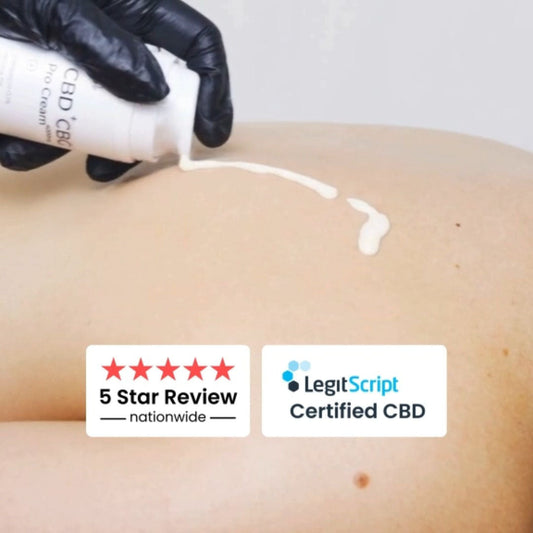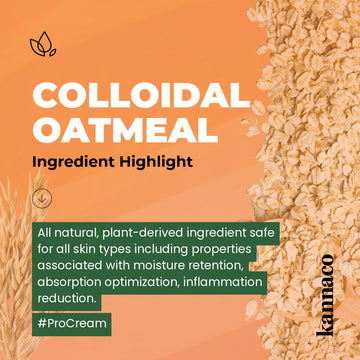Topical CBD, CBG: Evidence of Efficacy and Therapeutic Potential
Topical CBD, CBG and the findings from 3 different studies on efficacy and therapeutic benefit.
In this article you will find the summarized findings of three different studies that provide evidence of efficacy and therapeutic potential associated with the topical application of CBD and CBG.
The following research explores topical CBD, CBG and how these hemp-derived, plant based chemical compounds influence cellular activity and physiological interactions. This research helps to provide more support regarding the potential therapeutic properties of topical CBD, CBG.
Defining Topical CBD and Topical CBG
For the purpose of this article, we define topical CBD and CBG as lotions, creams, gels and similar formats infused with hemp-derived cannabinoids, specifically Cannabidiol (CBD) and Cannabigerol (CBG).
Study Number 1 – Evidence That the Plant Derived Cannabinoid, CBG, is a Highly…
The British Journal of Pharmacology published a study in 2010 providing evidence that the cannabinoid Cannabigerol (CBG) can partially bind to CB1 receptors in the central nervous system and CB2 receptors in peripheral tissue. Their findings also revealed that CBG influences cellular activity related to inflammation and pain signaling pathways.
Top 3 Findings in Summary
- Finding number one suggests topical CBG can influence the activity in immune cells and pain signaling pathways.
- The research indicates that CBG possesses a strong ability to interact with immune cell receptors including the ability to partially bind to CB1 receptors in the central nervous system and CB2 receptors in peripheral tissue.
- Research from this study suggests topical CBG possess potential to provide therapeutic support for general physical discomfort, some types of inflammation, swelling, and stiffness.
Date of Publication: 2010
Published by: The British Journal of Pharmacology
Link: View Research
Study Number 2 – A Therapeutic Effect of CBD-Enriched Ointment in Inflammatory Skin…
In 2019, researchers conducted a clinical trial involving patients who applied topical CBD twice daily for 90 days.
The results showed significant improvements in overall skin health including hydration and elasticity with no patients experiencing negative side effects such as irritation or allergic reactions, emphasizing topical CBD and safety.
The objective of the clinical research was to investigate and observe the potential therapeutic effect of topical CBD administered to the skin.
Top 3 Findings in Summary
- Topical CBD played a significant role in the reduction of inflammation and the ability to support skin conditions like psoriasis and atopic dermatitis, which are a response triggered by chronic inflammation.
- The research provided clinical evidence supporting the notion that topical CBD can influence or “modulate” cellular activity, and ultimately influence inflammatory response, showing the potential to contribute to an improved quality of life.
- Furthermore, the research provides evidence that topical CBD has the potential to improve overall skin health with observations of improved hydration and elasticity as well as reduced skin inflammation among the trial subjects.
Date of Publication: 2019
Published by: La Clinica Terapeutica
Link: View Research
Study Number 3 – Transdermal CBD (Cannabidiol) Reduces Inflammation and Pain-Related Behaviors in…
In 2016, researchers conducted a study to observe the effects of topical CBD and its influence on joint swelling and pain signals. Both human beings and all mammals, including rats, have an Endocannabinoid System (ECS).
In this study, researchers used a topical CBD gel, which they to the joints of arthritic rats. Their findings provide evidence in the ability for topical CBD to influence activity associated with the reduction of inflammation and pain signaling pathways.
Key Findings
- The application of topical CBD reduced joint swelling in arthritic rats, providing evidence of the ability to influence cellular activity associated with inflammation and pain signaling pathways.
- Arthritic rats who were treated with topical CBD exhibited significantly less behaviors associated with pain signaling.
- The study suggests topical CBD is non-invasive and safe as no adverse effects or irritation were reported.
Date of Publication: 2013
Published by: European Journal of Pain
Link: View Research
In summary, there is plenty of room for continued research, topical CBD and CBG present strong evidence of their ability to influence cellular activity from inflammation cells and pain signaling pathways to skin cell interactions and the downregulation of enzyme activity.








No comments